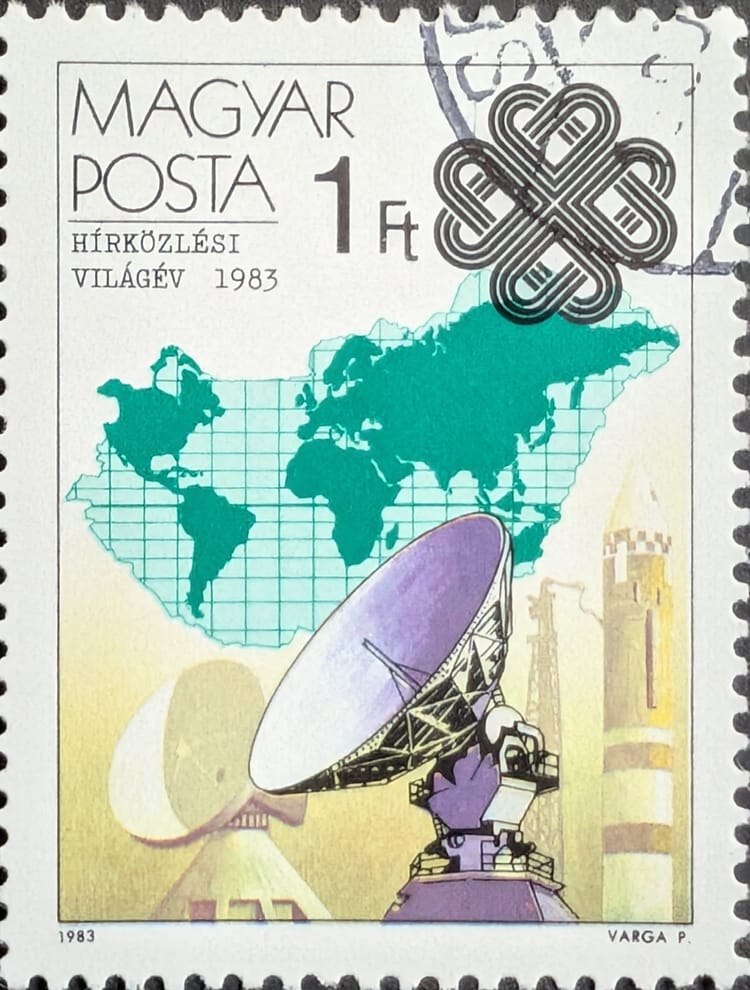Right ‘round About Spinlaunch and Rocket Lab’s Latest Acquisition

Thursday next week is Thanksgiving here in the United States. I like spending time with family and friends on Thanksgiving, snarfing up delicious pies and turkey--sometimes in that order. In other words, there will be no article next week, and for those celebrating, I hope it’s a delightful and tasty event.
You’ve probably seen the reporting about the latest Russian ASAT test. There’s not much to add, but I’ll observe there’s been a lot of hand-wringing about rational companies with plans for large constellations. And to be sure, their plans are concerning. On the other hand, the worst actors by far are governments (the supposed space caretakers) intentionally creating uncontrollable debris in orbit, and there’s no real consequence for their destructive behaviors. Their actions could be compared to police robbing a store or the Environmental Protection Agency dumping nuclear waste in the water--and then bragging about it. Their example sets the expectations for everyone else.
It’s bad for business (among other things).
On to the analyses!
The Spending Indicates the Focus
Before starting, just a little bit more information about Astra Space, which was the second story in “Project Kuiper’s Imaginary Rocket, Astra Space’s Broadband Distraction.” In this SpaceNews story, Astra’s CEO pushes the reason for the company to throw its hat in the low Earth orbit (LEO) broadband arena is that it’s “incredibly valuable.” He then attempts to allay concerns by noting his company is focusing on launching satellites to orbit. One is an observation of perceived V-band value, and the other is a re-emphasis of the desired goal.
However, I’m sure Jeff Foust (or his editor) smirked a little while typing up the article’s title: “Astra says focus is on launch as it files application for satellite constellation.”
Suborbital Lawn Dart?
Another company, Spinlaunch, announced it had successfully launched a 3-meter long prototype into a suborbital trajectory from its centrifuge-based launch system. According to a SpaceNews article, the company’s CEO has noted this is the first of a series of ~30 planned tests over the next six months, with the company iterating versions of its rocket along the way. He doesn’t give out the exact altitude the prototype reached but did generalize the achievement by noting Spinlaunch’s machine lofted it several tens of thousands of feet.
The provided altitude range still appears somewhat humble when compared with another suborbital system, New Shepard, which achieves 300,000+ ft (~106 km). But Spinlaunch’s management appears happy with the result and seems focused on its goal. Ultimately, at least according to the company’s public plans, it aims to launch 200 kg of payload into LEO. Moreover, the company’s CEO seems to think Spinlaunch can launch for significantly less than its competition, which may be SpaceX because the following quote wouldn’t be too exciting otherwise (from that SpaceNews article):
SpinLaunch projects that, on a per-kilogram basis, the system will be less expensive than “incumbent large-scale launch vehicles” in service today, he said. “It will also be 10 to 20 times less expensive than the emerging small launch systems. We’ve developed a system that is very disruptive and very well-suited to launching the next generation of large-scale low Earth orbit satellite constellations.”
Math--Again!!
If this project succeeds, and if the CEO’s projected launch prices are indeed 10-20 times less than small launch systems, then it could force SpaceX to lower its rideshare price on the Falcon 9, which currently flies smallsats to orbit for $5,000/kg. Based on Rocket Lab’s Electron (~$25,000/kg) and Virgin Orbit’s LauncherOne (~$24,000/kg), a 10 times reduction may result in $2,500-$2,400 per kg. It’s also less than SpaceX’s Smallsat Rideshare program pricing. Obviously, the more ambitious 20 times reduction might be much less--$1,250-$1,200 per kg--which would be less than what SpaceX’s large satellite customers pay.
Those (currently fictional and estimated) Spinlaunch launch prices probably excite a lot of smallsat operators. But the company has admitted that it still needs to test the rocket part of the system, which includes the stages, the engines, etc. Presumably, those technologies and systems will all be tested in some way during Spinlaunch’s 30-launch test campaign. Space companies can’t seem to help themselves when they project their schedules and are normally unreasonably optimistic in their projections.
At this point, it’s not a given that Spinlaunch will complete its test campaign within six months from now. But if it’s closer to that goal than taking a full year, that may be a positive indicator for the company’s plan implementation and management.
SPAC-Induced Buying Spree
Rocket Lab did warn people that it would be on a buying spree earlier this year, and here it is, buying Planetary Systems Corporation (PSC). From its press release, Rocket Lab thinks its acquisition of PSC is a good thing:
The acquisition will enable Rocket Lab to leverage PSC’s strong brand and quality product offering of lightweight, cost-effective, and flight proven hardware across its vertically integrated Space Systems division of Photon satellite buses and spacecraft components solutions. The deal also enables PSC to make use of Rocket Lab’s resources and manufacturing capability to grow their already-strong commercial hardware trade. PSC is the latest addition to the Space Systems portfolio after recent acquisitions of Advanced Solutions, Inc (ASI) in October 2021 and Sinclair Interplanetary in April 2020, and further strengthens Rocket Lab’s end-to-end space offering across the full launch and satellite spectrum.
The strategic rationales for any acquisition would be:
- Quick market entry
- Avoiding costs/risk of developing new product
- Gaining market power
- Acquiring knowledge
Of those four rationales, at least three are definitely in play, which indicates that Rocket Lab did its homework with this acquisition.
Rationales, Identified and Unspoken
PSC has established itself and its products in the market, and its flight heritage page contains an impressive list of customers and launches. There are some repeat customers on that list. Rocket Lab essentially is buying into a market with this acquisition. PSC also has mature products, which it developed while entirely incurring risk. With mature products already on tap, Rocket Lab doesn’t have to worry about sinking money into more development unless PSC sees other market opportunities (cost-effective and flight-proven hardware). I can’t speak to PSC’s market power, except to note that there are repeat customers, which indicates a loyal customer base (strong brand and quality product).
The knowledge Rocket Lab will acquire through this acquisition is interesting and not referenced in the press release. While PSC’s technology may be helpful (Photon bus), Rocket Lab is also gaining a customer list it could only dream of, one providing the company detailed insight of smallsat operators and launch providers. Acquiring PSC may provide Rocket Lab a great list of customer pain points it may not have been aware of, as well as some idea of the actual size of the smallsat market. That may allow the company to decide whether to continue Neutron development.
It’s not clear if any of these will make Rocket Lab any more successful as its launches haven’t reached the company’s desired annual rate. The company still needs to make Electron a pillar of reliability and develop and field Neutron. No matter the maturity of Electron, the acquisition will add complexity to Rocket Lab’s tasks.




Comments ()